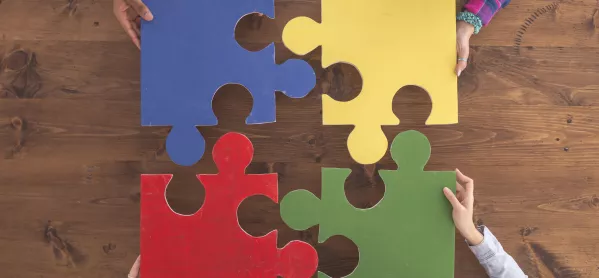Life is all about taking small brave steps every day. Bravery could be about sharing worries, asking for help when you need it, or trying something new.
For this year’s Children’s Mental Health Week, Place2Be is encouraging children to explore what it means to be brave. Here are four ways that teachers can help children to “find their brave” both inside and outside the classroom.
1. Think about what bravery feels like
We can show bravery in all sorts of ways. Being brave can mean facing a situation when you’re unsure about something, and having a go anyway. But being brave isn’t always easy, and sometimes your emotions, such as feeling worried or afraid, might get in the way of feeling brave. However, that doesn’t mean that you aren’t being brave.
It’s important to remember that we’re all different, and what is brave to one person, might not be as challenging for another. To understand what it feels like to be brave, have a think about a situation you have been in when you were worried or afraid but found your courage:
- What feelings did you have when you were faced with this difficult situation (eg worried about getting something wrong, or that people will laugh at you, etc)?
- How did you overcome these feelings?
- How did you feel after doing something brave?
*Download this assembly guide and slides to help children understand what it feels like to be brave.
Children’s Mental Health Week: How a boy found courage to speak out about how his feelings
Quick read: Talk about your feelings, charity tells teachers and pupils
Advice: How to talk to pupils about mental health problems
2. Identify when you’ve been brave at school
You can be brave in any environment, at home, playing sport, being with your friends, and at school. There are lots of times at school where you may have to be brave. Putting up your hand in class to answer questions can be brave. Asking your friend to play can be brave. Going up to someone who is on their own at lunchtime and joining them can be brave. And these are just a few brave choices that you may have to make during your school day. Have a go at writing down the brave decisions that you’ve made at school.
*Use these class activities to help children identify bravery.
3. Face your fears and try something new
Bravery comes in all shapes and sizes. Sometimes decisions you make require you to take small brave steps. While other decisions may feel like a big brave leap. Being out of your comfort zone can feel scary, and it often feels like an easier decision to not push yourself. Trying something new takes courage, but your bravery is often rewarded. You will have new experiences, discover hidden skills and talents, and learn lots about yourself.
Write down or draw a picture of a new skill you’d like to learn or activity you could try. Talk about how you feel about doing this and what brave steps you will put in place to help you feel comfortable about trying something new.
*These show and tell templates can help children to share their brave moments or goals
4. Ask for help if you need to
Bravery isn’t about coping alone or holding things in. It’s about finding positive ways to deal with things that might be difficult, overcoming physical and mental challenges and looking after yourself.
Being brave can be about getting support for big things that are happening in your life, as much as it is about getting help with the little things that happen every day. Bravery can also be about saying no, and sharing your worries.
Write a list of the people around you that you can ask for help. People are brave in different ways - children could ask your family, friends and teachers what they do to be brave. They might have some really good tips to try.
Children who are struggling to cope with how they’re feeling can call Childline for free on 0800 1111 or use the Shout crisis text line (85258).
Niki Cooper is clinical director of Place2Be, a charity which provides mental health counselling, support and training to schools.
